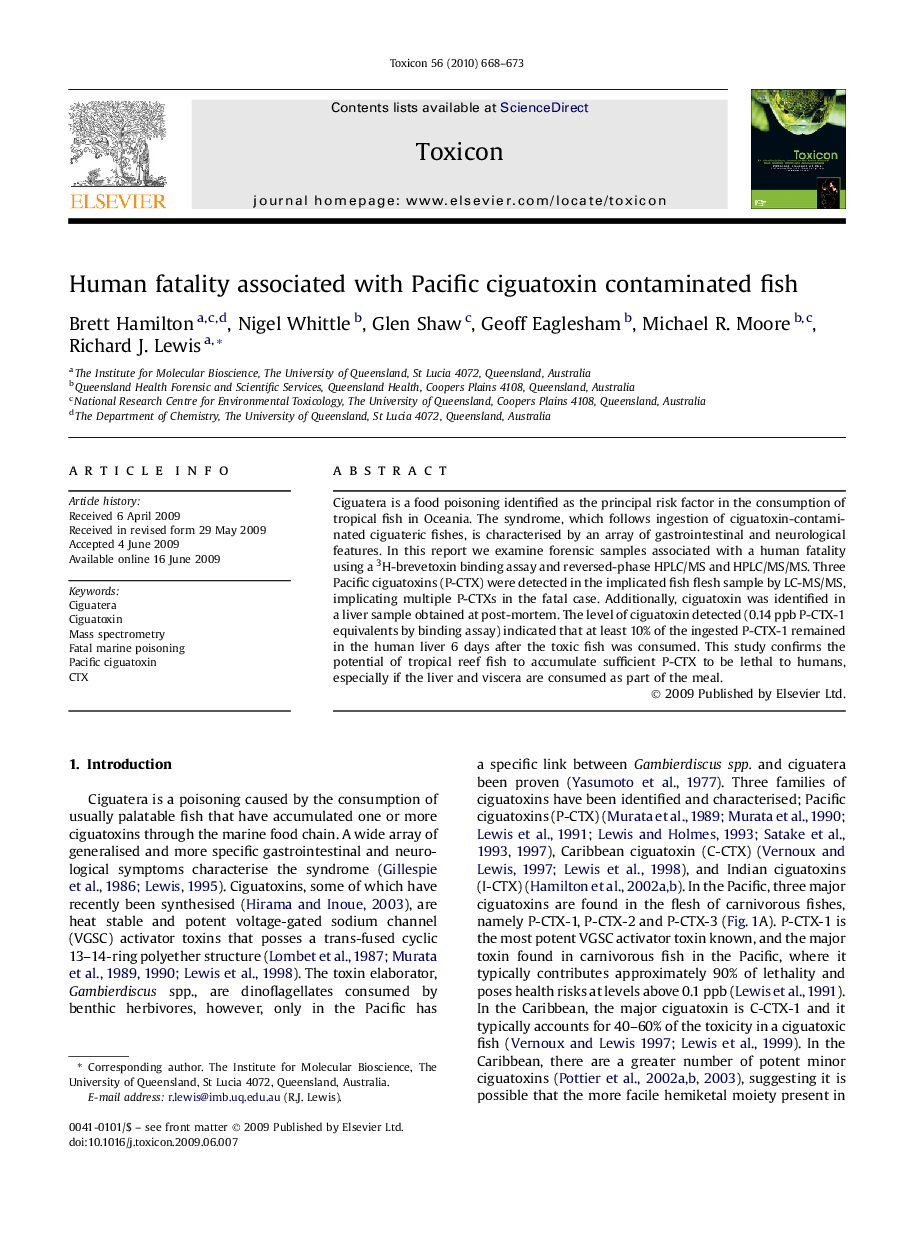| Article ID | Journal | Published Year | Pages | File Type |
|---|---|---|---|---|
| 2065629 | Toxicon | 2010 | 6 Pages |
Ciguatera is a food poisoning identified as the principal risk factor in the consumption of tropical fish in Oceania. The syndrome, which follows ingestion of ciguatoxin-contaminated ciguateric fishes, is characterised by an array of gastrointestinal and neurological features. In this report we examine forensic samples associated with a human fatality using a 3H-brevetoxin binding assay and reversed-phase HPLC/MS and HPLC/MS/MS. Three Pacific ciguatoxins (P-CTX) were detected in the implicated fish flesh sample by LC-MS/MS, implicating multiple P-CTXs in the fatal case. Additionally, ciguatoxin was identified in a liver sample obtained at post-mortem. The level of ciguatoxin detected (0.14 ppb P-CTX-1 equivalents by binding assay) indicated that at least 10% of the ingested P-CTX-1 remained in the human liver 6 days after the toxic fish was consumed. This study confirms the potential of tropical reef fish to accumulate sufficient P-CTX to be lethal to humans, especially if the liver and viscera are consumed as part of the meal.
